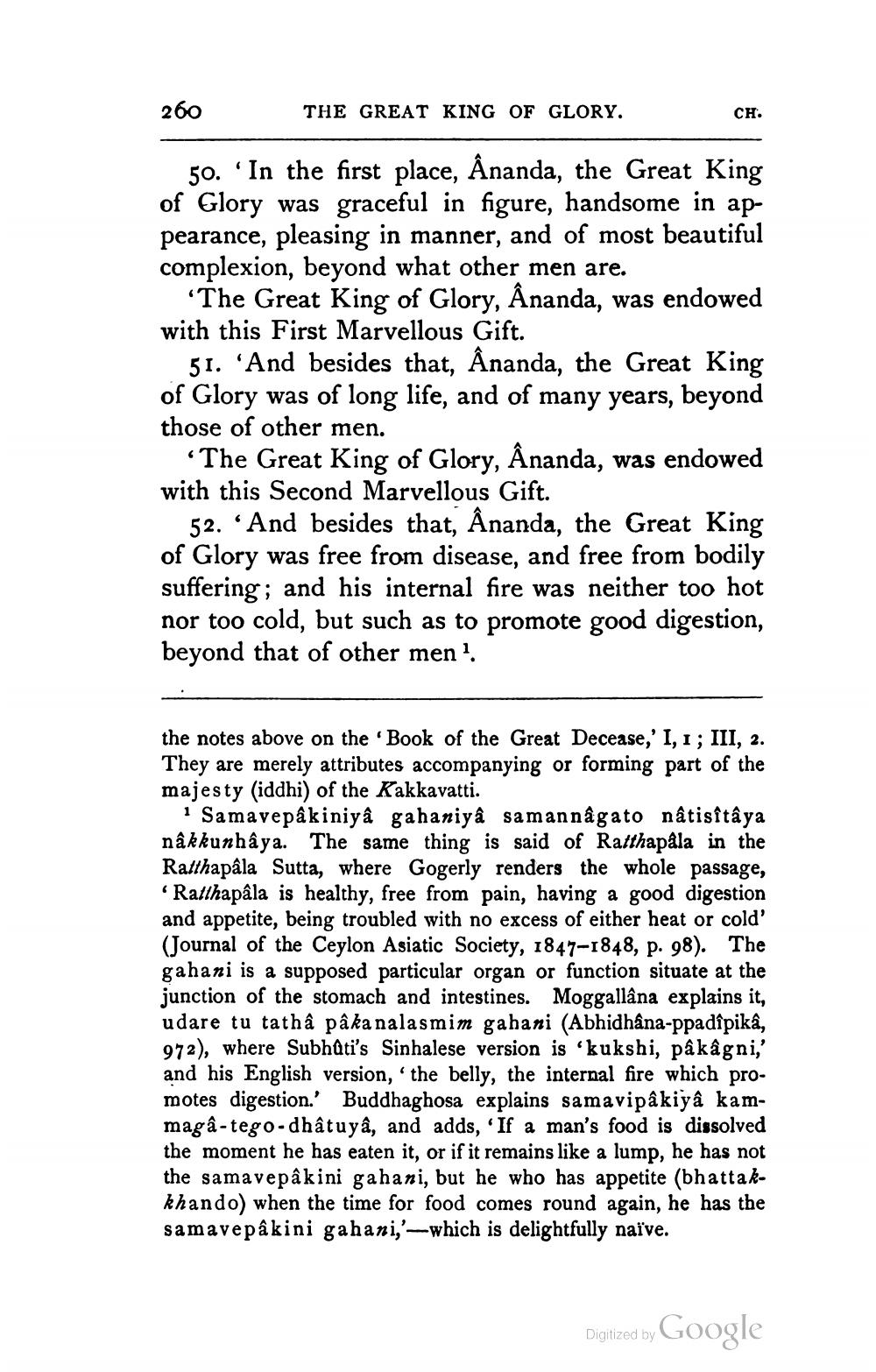________________
260
THE GREAT KING OF GLORY.
CH
50. In the first place, Ananda, the Great King of Glory was graceful in figure, handsome in appearance, pleasing in manner, and of most beautiful complexion, beyond what other men are.
'The Great King of Glory, Ânanda, was endowed with this First Marvellous Gift.
51. 'And besides that, Ânanda, the Great King of Glory was of long life, and of many years, beyond those of other men.
“The Great King of Glory, Ânanda, was endowed with this Second Marvellous Gift.
52. ‘And besides that, Ânanda, the Great King of Glory was free from disease, and free from bodily suffering; and his internal fire was neither too hot nor too cold, but such as to promote good digestion, beyond that of other men '.
the notes above on the Book of the Great Decease,' I, 1; III, 2. They are merely attributes accompanying or forming part of the majesty (iddhi) of the Kakkavatti.
Samavepâkiniyâ gahaniyâ samannagato nâtisîtâya nâkkunhâya. The same thing is said of Ratthapala in the Ratthapala Sutta, where Gogerly renders the whole passage, 'Ratihapala is healthy, free from pain, having a good digestion and appetite, being troubled with no excess of either heat or cold' (Journal of the Ceylon Asiatic Society, 1847-1848, p. 98). The gahani is a supposed particular organ or function situate at the junction of the stomach and intestines. Moggallâna explains it, udare tu tath â pâka nalasmim gahani (Abhidhâna-ppadîpikâ, 972), where Subhâti's Sinhalese version is 'kukshi, pâkâgni, and his English version, the belly, the internal fire which promotes digestion.' Buddhaghosa explains samavipâkiyâ kammagâ- tego-dhâtuyâ, and adds, "If a man's food is dissolved the moment he has eaten it, or if it remains like a lump, he has not the samavepâkini gahani, but he who has appetite (bhattakkhando) when the time for food comes round again, he has the samavepâkini gahani,'-which is delightfully naïve.
Digitized by Google




